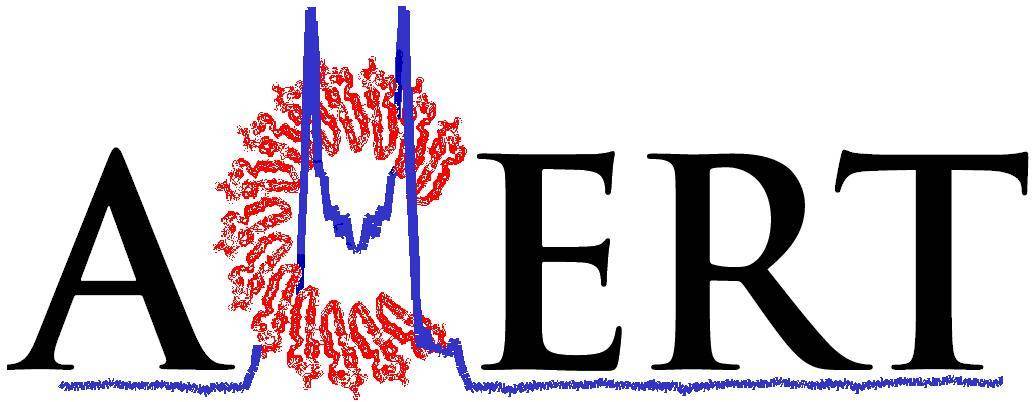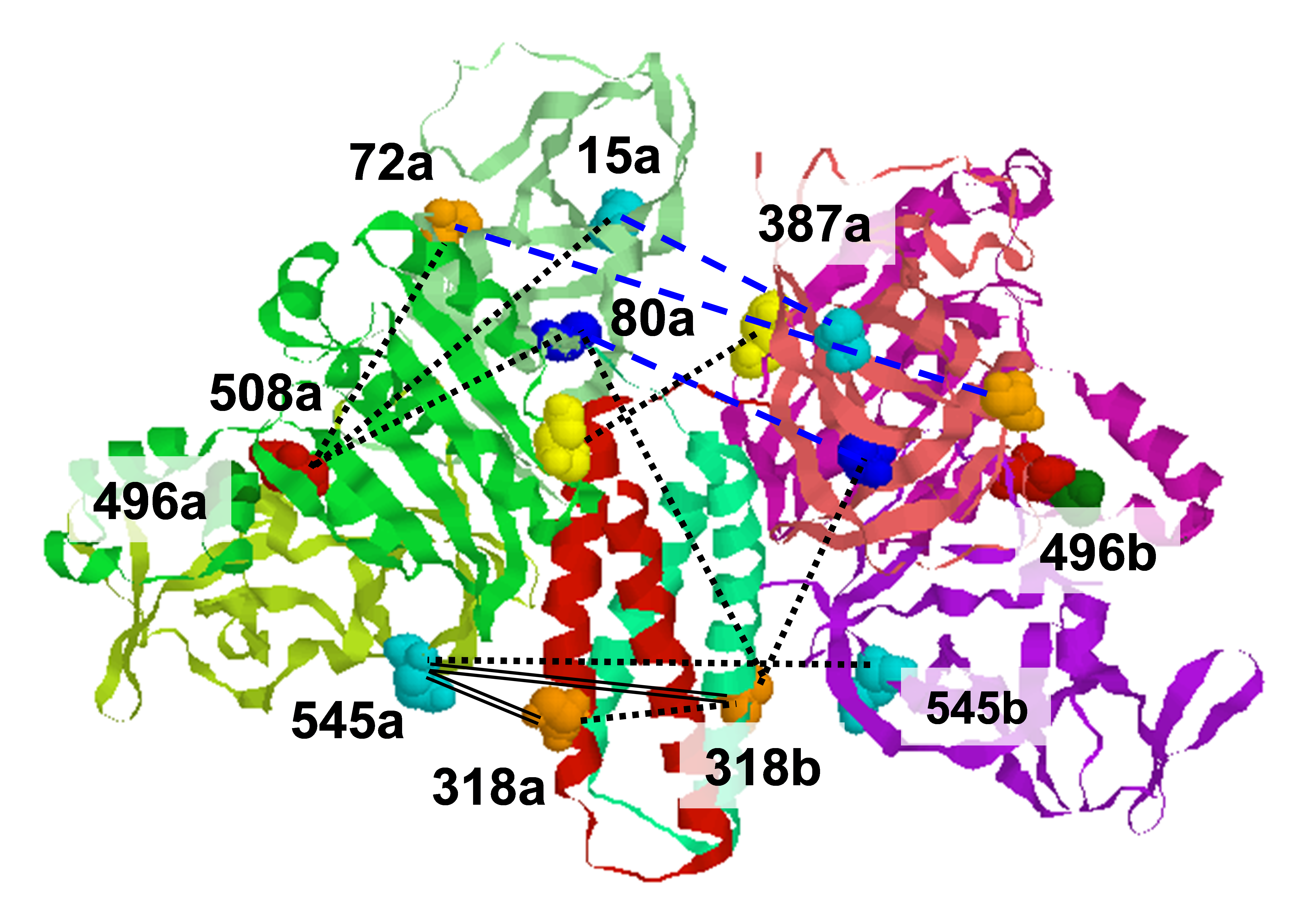.svg) National Institute of General Medical Sciences |
 |
 |
National Biomedical Resource for |
| Recent Highlights | ||
During replication of herpesviruses, capsids escape from the nucleus into the cytoplasm by budding at the inner nuclear membrane. This unusual process is mediated by the viral nuclear egress complex (NEC) that deforms the membrane around the capsid by oligomerizing into a hexagonal, membrane-bound scaffold. Here, we found that highly basic membrane-proximal regions (MPRs) of the NEC alter lipid order by inserting into the lipid headgroups and promote negative Gaussian curvature. We also find that the electrostatic interactions between the MPRs and the membranes are essential for membrane deformation. One of the MPRs is phosphorylated by a viral kinase during infection, and the corresponding phosphomimicking mutations block capsid nuclear egress. We show that the same phosphomimicking mutations disrupt the NEC-membrane interactions and inhibit NEC-mediated budding in vitro, providing a biophysical explanation for the in vivo phenomenon. Our data suggest that the NEC generates negative membrane curvature by both lipid ordering (ESR) and protein scaffolding and that phosphorylation acts as an off switch that inhibits the membrane-budding activity of the NEC to prevent capsid-less budding. Publication: mBio 12, (4), e01548-21 (2021), PMC8406295. |
||
|
||
|
Michael K. Thorsen (Department of Molecular Biology and Microbiology, Graduate Program in Cellular, Molecular and Developmental Biology, Tufts University School of Medicine, Boston, MA) Alex Lai (ACERT) Michelle W. Lee (Department of Bioengineering, Department of Chemistry and Biochemistry, California NanoSystems Institute, University of California, Los Angeles, Los Angeles,CA) David P. Hoogerheide (Center for Neutron Research, National Institute of Standards and Technology, Gaithersburg, MD) Gerard C. L. Wong (Department of Bioengineering, Department of Chemistry and Biochemistry, California NanoSystems Institute, University of California, Los Angeles, Los Angeles,CA) Jack H. Freed (ACERT) Ekaterina E. Heldwein (Department of Molecular Biology and Microbiology, Graduate Program in Cellular, Molecular and Developmental Biology, Tufts University School of Medicine, Boston, MA) |
||
|
|
About ACERT Contact Us |
Research |
Outreach |
ACERT is supported by grant 1R24GM146107 from the National Institute of General Medical Sciences (NIGMS), part of the National Institutes of Health. |
|||||
| ||||||||